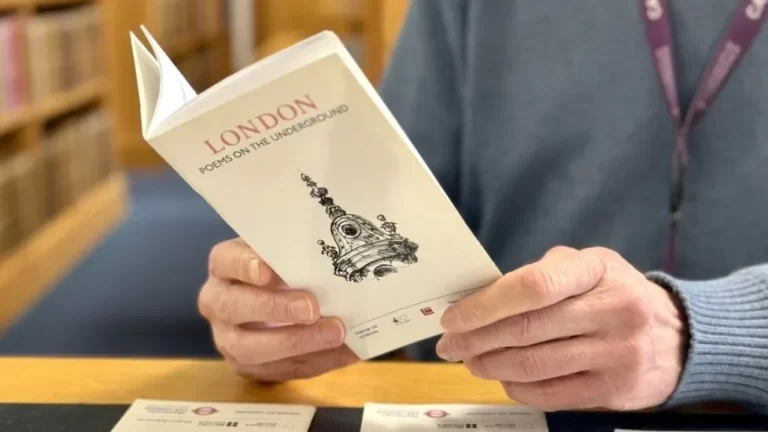Hundreds of posters and memorabilia items from a public art project – Poems On The Underground – have been donated to Cambridge University Library.
The scheme began in 1986 with posters displayed across London's Tube network, featuring the words of literary greats.
Among the archive is a letter from the late poet Philip Larkin, who died before he could see his own words displayed in print on the Tube. The university said the archive was now available to anyone by consultation.
Poems On The Underground was initially conceived by writers Judith Chernaik, Gerard Benson and Cicely Herbert. Among the many items is the letter written to Chernaik by Larkin, whose poem The Trees appeared on trains on the Underground in 1986.
Larkin, who died aged 63 in December 1985, dictated the letter in July that year, due to his failing health. He wrote: “I am glad your project is being favourably regarded.

“It makes me wonder whether I shall ever actually see one of the poems in the proposed location.” A letter from Irish poet Seamus Heaney saying the project had “made a difference”, is also included.
“I admire you for keeping the underground poems a priority: it is worth doing and has made a difference, I am sure, to the life-worth of poetry for many people,” he wrote in a card in 1999.
“Blessings on the work,” Heaney added. Heaney's poem The Railway Children was included in the first set of Poems On The Underground posters, in January 1986.
John Wells, senior archivist at Cambridge University Library, said: “This wonderful archive highlights the whole range of activities sponsored by Poems On The Underground – not just the well-known poetry posters in Tube carriages, but also readings, concerts and book publications.”
Ms Chernaik said: “It is hugely gratifying to know that our archive is now housed and catalogued at one of the greatest libraries of the world, fully available to readers and researchers, to everyone interested in public space for the arts and in poets past and present – the most eloquent and enduring witnesses to their times.”
— CutC by bbc.com


